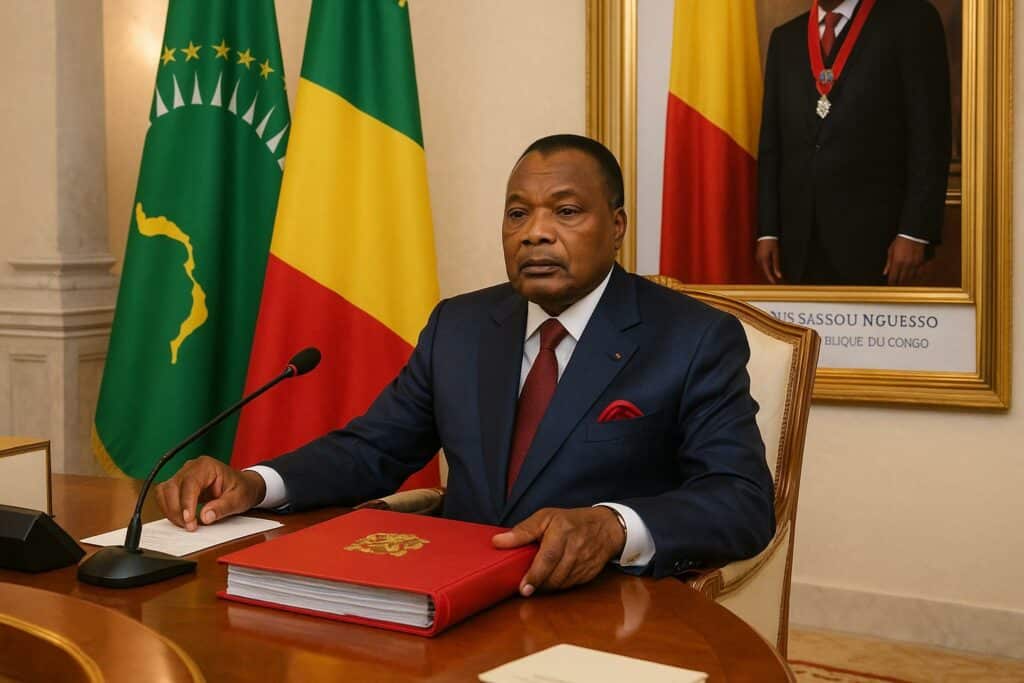Strategic land allocation for potash export hub
The Council of Ministers convened on 17 September 2025 at the Palais du Peuple under the high authority of President Denis Sassou Nguesso. Foremost among the measures adopted was the authorisation for the Chinese-Congolese firm Luyuan des Mines Congo to occupy 577 hectares in the Hollmoni area of Loango, Kouilou. The decree converts a state land reserve into an industrial zone slated for a deep-water port dedicated to potash pellets.
Valued at over 200 million US dollars, the investment is projected to generate roughly 1 500 jobs during construction and more than 800 permanent positions once operations begin. Officials emphasise that the project should shorten export routes, stimulate ancillary logistics services and anchor Kouilou in global fertiliser supply chains (official communiqué). By approving the land transfer, ministers signalled confidence in the industrial minerals segment at a time when world food-grade potash prices remain buoyant.
National Energy Pact aligns with continental vision
Energy and Hydraulics Minister Emile Ouesso secured cabinet endorsement of the Pacte national énergétique, Brazzaville’s contribution to the Africa-wide goal of supplying electricity to 300 million additional citizens by 2030. The document, drafted after the January 2025 African Energy Summit in Dar es-Salaam, commits Congo to rehabilitating ageing hydro plants, extending rural grids and opening new segments to private capital while safeguarding the solvency of public utilities.
Government sources argue that the pact is consistent with the CEMAC master plan for interconnected transmission lines and could unlock concessional financing from development partners. Analysts note that efficient execution would improve industrial competitiveness and mitigate the urban-rural divide that still characterises the national electrification rate (official communiqué).
Economic diplomacy intensifies in multilateral arenas
Economy, Planning and Regional Integration Minister Ludovic Ngatse delivered five strategic communications. First, the shift to the 2008 System of National Accounts aims to capture the informal and digital sectors more accurately, thereby buttressing revenue mobilisation and international credibility. Second, Congo will seek the chairmanship of the African Development Bank’s Board of Governors during the 2025 annual meetings in Abidjan, ahead of hosting the 2026 sessions in Brazzaville.
The ministry further briefed the Council on Congo’s participation in the installation of the AfDB’s ninth president on 1 September 2025, outcomes of the 7th extraordinary ECCAS summit in Sipopo and the 16th CEMAC conference in Bangui. During the latter, President Sassou Nguesso outlined the Economic and Financial Reform Programme and accepted the hand-over of the CEMAC rotating chair. These diplomatic engagements reinforce Congo’s positioning as a bridge between Central African economies and multilateral financiers (official communiqué).
Institutional appointments reflect administrative drive
Two senior appointments closed the meeting. Jean-Noël Ngouedy Makota becomes Director-General of State Lands, placing him at the centre of land-use modernisation, while Dimitri Presley Diambou Bounkita takes the post of Inspector-General for Small and Medium-Sized Enterprises and Handicrafts. The nominations, effective immediately, underline the administration’s intent to accelerate dossier processing and compliance oversight in sectors pivotal to job creation.
Key takeaways and fiscal-legal lens
The day’s deliberations lasted just over two hours, yet the combined monetary value of the approved measures exceeds several percentage points of GDP. From a legal standpoint, the port decree exemplifies the government’s ability to mobilise public land for strategic investments without amending existing expropriation statutes. Economically, adopting the more granular 2008 SNA could lift the recorded size of the economy, easing debt-to-GDP ratios and improving the sovereign risk profile.
Observers note that each decision dovetails with the national development plan: boosting extractive exports, delivering universal energy access, strengthening banking penetration via the future BEAC branch in Dolisie and elevating Congo’s voice in regional bodies. In the words of a senior official consulted after the session, “These resolutions collectively send a signal of continuity and ambition—anchoring confidence at home while projecting stability abroad.”

